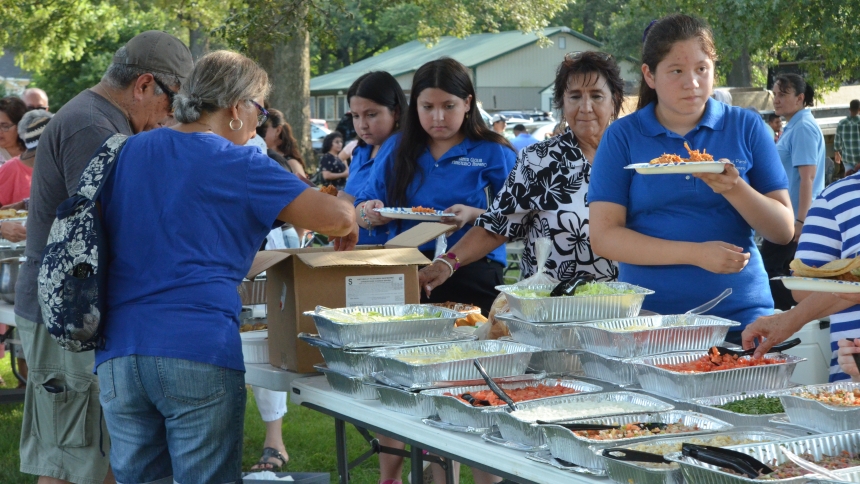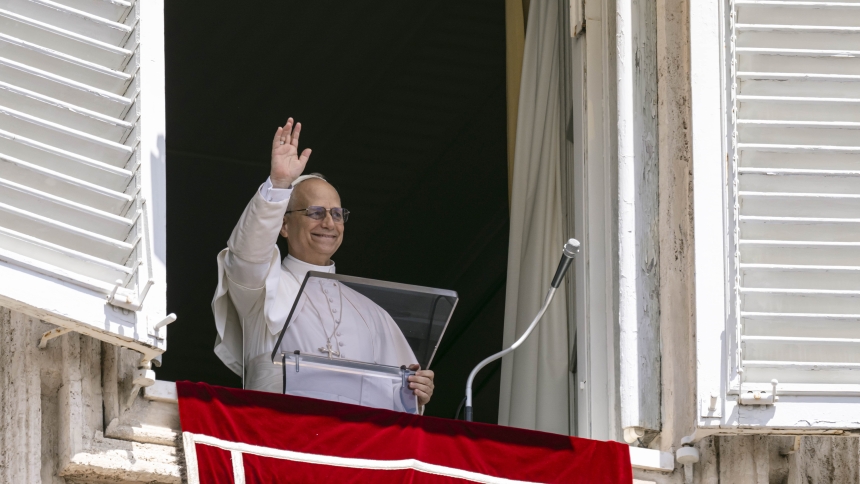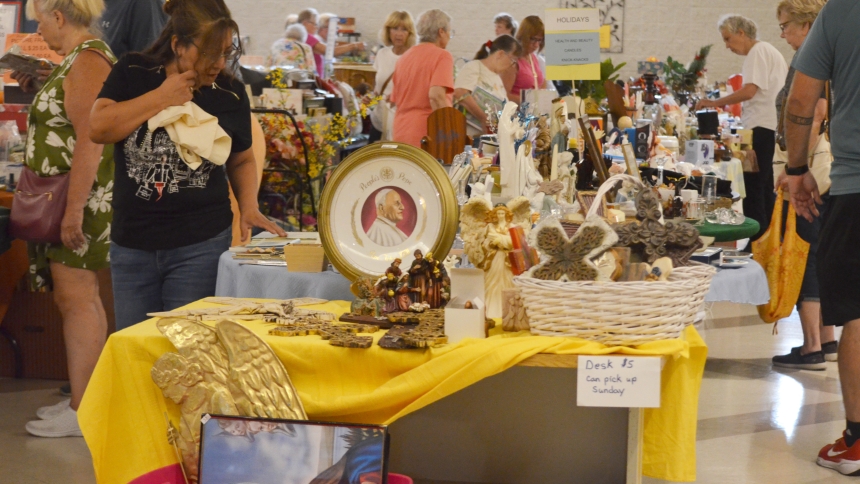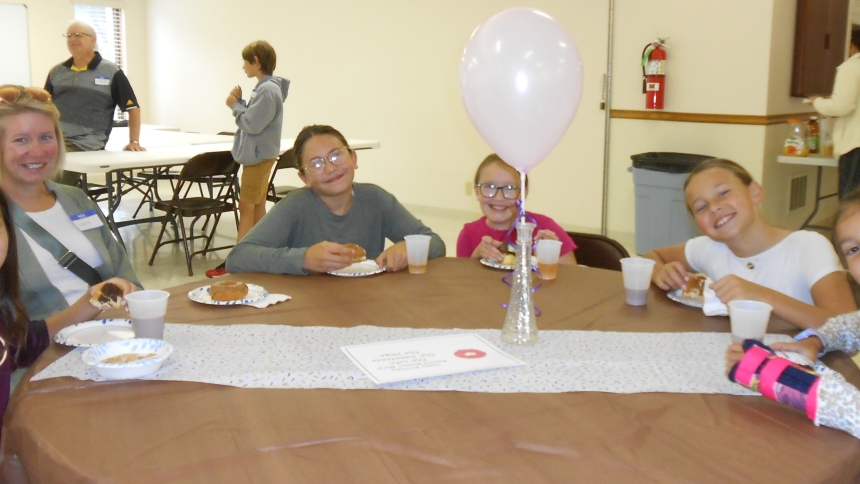
LOWELL – Members of the faithful gathered July 27 on a small family-owned and operated farm located just south of Lowell to celebrate Mass and share a meal with the migrant workers who seasonally reside there. In the late afternoon, Herr Farm was once again the backdrop for the Diocese of Gary’s annual Mass for Migrant Farm Workers.
Claudia Sadowski, Ph.D., coordinator of intercultural ministry, reflected on the fact that the Mass is the heart of the Catholic faith. She explained it is where individuals encounter Christ in the Word and the Eucharist, and where they are reminded that everyone is one body in Him.
“For me, the Mass is a sacred encounter that unites people beyond borders, languages or status,” Sadowski said. “It is the place where the dignity of every person is reaffirmed, especially for those who are often unseen or unheard in our society.”
She added, “When we celebrate Mass with our migrant brothers and sisters, we are proclaiming with our presence that they matter, that they belong, and that Christ is walking with them.”
Sadowski said the diocese and the Office of Missionary Discipleship and Evangelization wanted to do everything possible to ensure the liturgy was truly an experience of beauty, reverence and cultural affirmation. That meant celebrating the Mass in Spanish, incorporating traditional music, involving migrant workers as lectors and gift bearers, and offering heartfelt preaching that speaks to their lived experience.
“We bring the Eucharist to the very place where they live and work, under the open sky, among rows of crops,” she said. “We also follow the Mass with a shared meal – an opportunity to build community and remind them that the Church is with them and for them.”
Bishop Robert J. McClory presided over the Mass. Speaking in Spanish, he welcomed the mainly Hispanic crowd that gathered around the outdoor altar under the evening's warm sun.
“We’re together today because we are family,” he said. “Families support each other, especially during difficult times of fear. We can trust in God to care for us.”
At other times during the liturgy, Bishop McClory received assistance from several members of clergy fluent in Spanish including Father Eduardo Malagon, who delivered the homily, and newly ordained Father Ivan Alatorre, who translated the bishop’s closing remarks.
Speaking directly to the migrant workers in attendance Bishop McClory said, “I see you. I love you. We thank you for your work, which gives us food to eat. We will continue to pray for you.”
Rich and Julie Serna, of St. John, previously ran the Hispanic ministry at St. John the Evangelist and currently partner with the parishes of SJE, Holy Name of Jesus, St. Edward, St. Michael the Archangel and St. Thomas More to create opportunities that support the migrants. Having grandparents who were farmworkers makes their volunteer efforts more personal. The Sernas have assisted in collecting food, clothes and toiletries for the workers at Herr Farm.
“Honestly, what we're trying to do is just make their lives a little bit easier and simpler,” said Rich Serna. “They do work very, very hard on the farm, especially during the harvest season. You'll see them working from 6 a.m. to 6:30 p.m. They are in the heat – whatever weather is, they're in it.”
Rich Serna said in addition to providing material items, he welcomes those times when he can assist in bringing religion into the lives of the migrant workers. He said many of them at Herr Farm may not be practicing Catholics but do consider themselves to be Catholic.
“It's great to be able to understand their situation more when (Mass) is held at the farm,” he said, “where people can actually see the fruits of their labor. You can see the corn stalks. You can see the soybeans. You can see all that stuff, and then start to realize how massive their job really is.”
Julie Serna shared her appreciation for the owners of Herr Farm for allowing the diocese to organize Masses on the property for the past several years.
“It appears they are very good to the workers, and they’ve been very open in working with us,” she said.
Every time Sadowski visits migrants in the fields of Northwest Indiana, she is struck by their humility, faith, and hard-working nature. Despite many challenges they face, including long hours, difficult weather conditions and separation from loved ones, she said they carry a quiet strength and resilience.
“They often welcome us with kindness and gratitude, but I always feel we are the ones being blessed by their presence,” she said. “Many of them have a deep love for God and a longing for community and spiritual nourishment. They remind me what it truly means to live a life of sacrifice and hope.”
Sadowski stressed that the workers are not just laborers in the background of daily life, but are human beings with stories, families, dreams and a profound faith. She noted, “those men and women have left everything behind to work tirelessly so that people can have food on their tables.”
“They are often isolated, underrepresented, and underserved,” Sadowski said. “They deserve our respect, our advocacy and our pastoral presence.”



